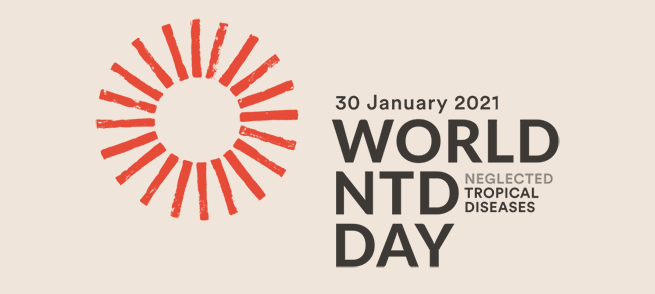Leishmaniasis on World Day for Neglected Tropical Diseases
January 30 #worldNTDday
January 30th, 2021

Today January 30 is the World Day for Neglected Tropical Diseases (NTDs). These diseases threaten more than one billion people living in the poorest and most marginalized places in the world. NTDs disable and disfigure people, taking them of their health and their chances of developing or being accepted in their community.
Among the neglected zoonoses, leishmaniosis stands out, a disease that ranks second as the most frequent cause of death behind malaria. 2021 is the year the World Health Organization (WHO) will launch #NTDRoadmap2030, a roadmap with new and ambitious objectives, among which it stands out to increase to 85% the countries that eliminate visceral leishmaniasis as a health problem and increase to all those that identify, report and treat most cases of cutaneous leishmaniasis.
Within the line of research "Diagnosis of leishmaniosis in the animal reservoir" the PhD student of the Complutense University of Madrid (UCM) María Victoria Ortega García, has developed a research work leading to the doctoral thesis entitled "Detection of Leishmania spp. in atypical reservoirs and molecular characterization”, which will be defended this year. The experimental phase has been developed in the Service for Emerging Zoonoses, Low Prevalence and Aggressive Biologicals of the VISAVET Health Surveillance Center of the Universidad Complutense of Madrid, the Microbial Immunology Unit of National Center for Microbiology of the Carlos III Health Institute (ISCIII), as well as in the Veterinary Pathology Center and the School of Veterinary Medicine at the University of Surrey.
According to the researcher, the largest known outbreak of human leishmaniasis in Europe has been taking place in the region of Madrid since 2009 and it has been shown that wild lagomorphs (rabbits and hares) are competent reservoirs of the disease. The objectives of this experimental work have been: to develop and implement previously described diagnostic techniques for common reservoirs, such as the dog in the detection of Leishmania infantum both in wild atypical reservoirs, specifically, rabbits and hares, as well as in domestic ones, specifically horses; perform the molecular characterization of L. infantum isolates from leporidae; and apply these techniques, until now diagnostic, as epidemiological tools to disease control, with a view to preventing future outbreaks.
More information of World Day for Neglected Tropical Diseases
Related news in other media:
- Leishmaniosis en el día mundial de las enfermedades tropicales desatendidas - animalshealth.es
VISAVET Health Surveillance Centre
Complutense University
